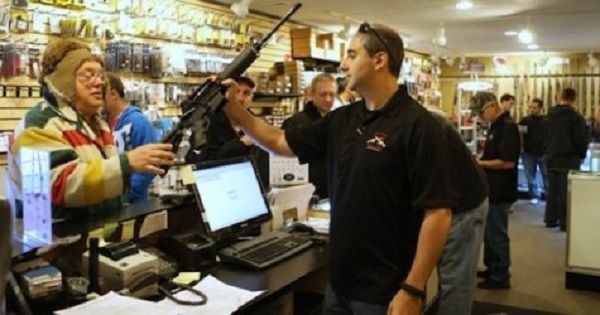
The Second Amendment Foundation and its partners in a federal lawsuit challenging California’s law requiring firearms dealers to video record all transactions have filed an appeal brief with the Ninth U.S. Circuit Court of Appeals.
The brief was prepared by attorneys C.D. Michel and Anna M. Barvir at Michel & Associates in Long Beach, and Donald Kilmer at Kilmer Law Office in Idaho, representing SAF. Other plaintiffs are the California Rifle & Pistol Association, Gun Owners of America, Gun Owners of California, the Gun Owners Foundation, On Target Indoor Shooting Range, Gaalswyk Enterprises and three private citizens.
The original lawsuit, known as Richards v. Newsom, may be read here.
In October 2024, the appeal brief notes, “the district court granted the State’s motion to dismiss under Federal Rule of Civil Procedure 12(b)(6) holding that, based on the court’s “experience and common sense,” Plaintiffs failed to state any plausible constitutional claim. The court reasoned that not even those forced to install cameras inside their own homes—and perpetually operate them on behalf of the State, all at their own cost—can so much as ‘state a claim upon which relief can be granted.’”
At the time the lawsuit was filed, SAF founder and Executive Vice President Alan Gottlieb stated, “Requiring firearms retailers to video record their transactions is not only an egregious violation of privacy, it involves an expense that is both cost-prohibitive, and could literally drive small dealers out of business. In addition, it would be impossible to record such transactions at gun shows, because at such events, dealers are merely vendors, operating in a large facility where such equipment would be impossible to install.”
The appeal focuses on three questions:
- Does a warrantless government mandate that firearm dealers collect audiovisual recordings of people engaged in constitutionally protected activity at all hours of every day and store and maintain that data for government inspection on demand, constitute an unreasonable search in violation of the Fourth Amendment?
- Does a law that compels firearm dealers to install, operate, and maintain surveillance infrastructure for the government’s exclusive benefit, at substantial expense, and appropriates private property for continuous data collection without compensation constitute an unlawful taking under the Fifth Amendment?
- Does a law requiring firearm dealers to continuously record audiovisual surveillance of their premises, including conversations in private homes, violate the First Amendment by chilling protected speech, deterring political association, and eliminating anonymity in expressive activity?
As noted in the brief, the case was brought “to redress the deprivation of constitutional rights under the color of law.”
California Gov. Gavin Newsom signed the law in September 2022 and the law was implemented in January 2024. It requires all California firearm dealers, including those who operate from their homes, to install “a digital video surveillance system” on their business premises. This system must be in operation 24 hours a day and the cameras must “clearly record images and, for systems located inside the premises, audio, of the area under surveillance” to “allow for the clear identification of any person.”
Recordings must be stored for a year by the licensee “and made available to government officials for inspection, which may occur without notice or limit.”
In their appeal brief, attorneys for the plaintiffs label this system “a mass surveillance regime designed to catalog the faces, conversations, and shopping habits of millions of Californians engaged in constitutionally protected conduct.”